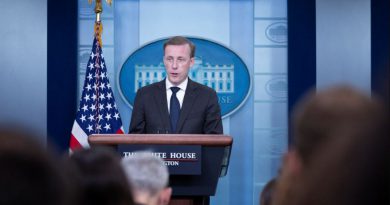OPINION: America has golden opportunity to forge a more stable Middle East
Countering the narrative of political Islam across the region should be a major strand of American Middle East policy…
The Obama Administration’s outlook on the Middle East was to blame past American mistakes, rather than hard-line Islamists for the regions woes. It is an error of perspective that has borne very real consequences today. His presidency was essentially to engage with America’s foes, as seen with the Muslim Brotherhood in Egypt and the Mullahs in Iran. The price of this was eschewing close relations with traditional U.S. allies in the region and generating greater instability.
Today the Trump administration have been struggling to find a solution to these deep-rooted problems. This has especially proven the case in Syria, where American abandonment of the Kurds left them exposed to Turkish aggression. However, despite a number of missteps, the prospect of stability across the region looks rosier than when he stepped into office just under 4 years ago.
The normalisation deals between the UAE, Bahrain and Israel has created a more stable platform for the region’s like-minded countries to cooperate against Iranian and Turkish backed aggression, in the form of violent proxies such as Hezbollah and Hamas. Whereas Obama cooled relations with these long-standing allies, Trump has recognised that an America less involved in the region needs these nations to band together.
However, the next administration, whoever is at the helm, has some major Middle East issues in the intray that must be dealt with and can help further the slow march to stability breaking out across the region.
Firstly the Kurdish issue. Understandably, they feel let down by American actions last year, however there is still the potential to foster a close alliance with them. America must play carrot and stick, offering greater support for the Self Administration but demand they cut all links and ties to the PKK. A stable, unified and autonomous Kurdish nation is potentially a silver lining of the very dark cloud of violence in Iraq and Syria over the past decade.
An independent Kurdistan would act as a bulwark against Turkish and the Iranian regime, likely forming close parntership with the alliance already blossoming between the Gulf and Israel. Simultaneously the new administration would be able to also curb Russian inflience in the region without a large American troop presence in the region through a strong Kurdish state.
Secondly, countering the narrative of political Islam across the region should be a major strand of American Middle East policy. Obama sought an accommodation with groups such as the Muslim Brotherhood, failing to recognise the harder line, undemocratic societies they sought to implement.
Trump has gone some way to rectify this, however his admiration of the increasing Islamist Erdogan shows there is a considerable way to go. Biden or Trump should therefore make repudiating the damaging impacts of Islamism a top priortiy of their Middle East policy.
In this respect, Biden arguably recognises the threat Erdogan and his ideology poses better than his opponent, who has shown a penchant for courting autocratic leaders. The former has labelled him an autocrat and called on them to recommit to their NATO commitments in light of closer partnership with Russia and aggression in the Eastern Mediterranean and Libya.
The difficulty in assessing which candidate is best placed to take the opportunity of building a more stable Middle East which rejects the violent ideology of Islamism is that foreign policy has barely featured in the race for the White House. The two debates we’ve had between the candidates have been dominated by name-calling and mud-slinging. In Biden concerns are that his foreign policy team doesn’t get the true nature of the Islamist threat, given the approach the previous administration took. Conversely Trump’s mistreatment of the Kurds and apparent cozyness with President Erdogan is also an impediment.
Whatever the outcome, America and the West have a golden opportunity to build a coalition of stability in the Middle East, between like-minded allies. The cost of failing to do so and reverting to the mistakes of the past will be seen in a harder line, more Turkish/Iranian influenced and violent Middle East.
Image credits: GrrrGraphics.com.
Disclaimer: Views expressed by writers in this section are their own and do not reflect Milli Chronicle’s point-of-view.


